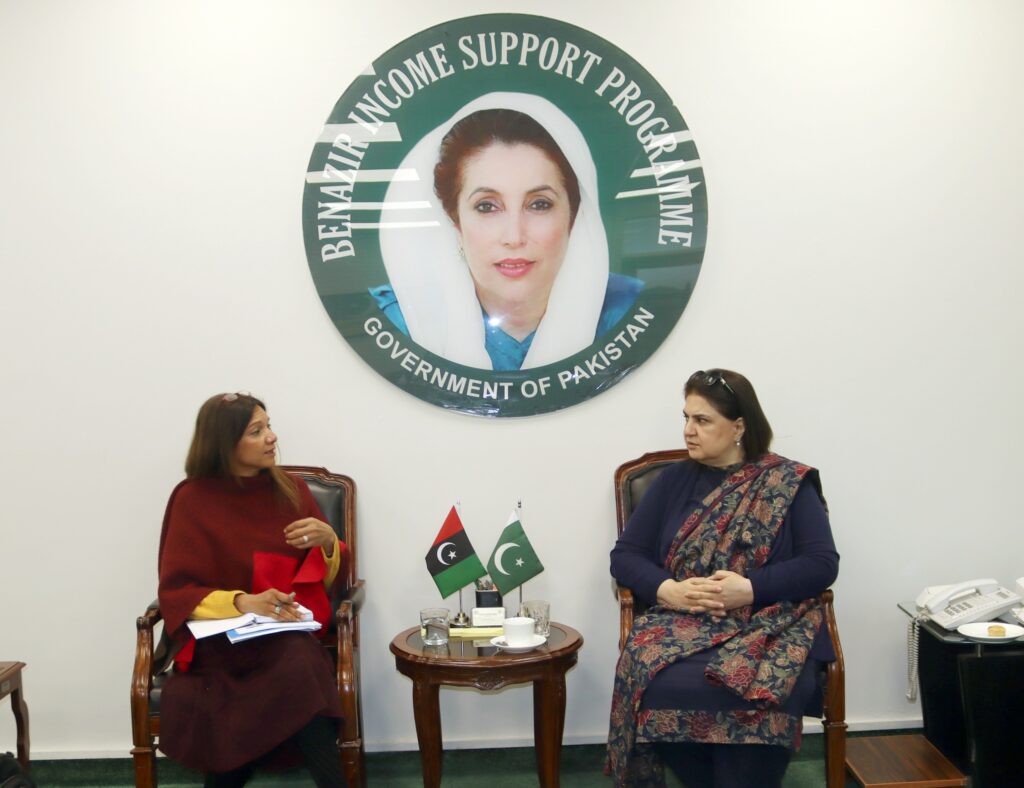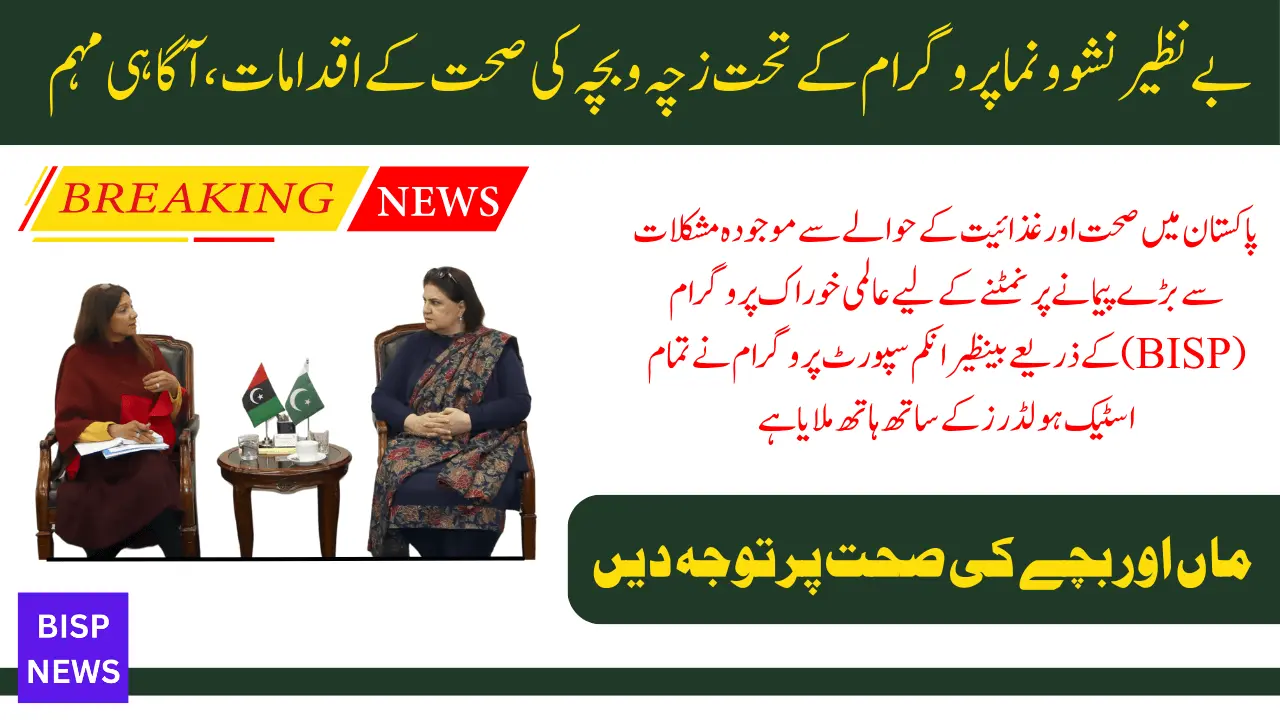Introduction
To deal with the existing difficulties with health and nutrition in Pakistan in a major way, the Benazir Income Support Programme through the World Food Programme (BISP) has joined hands with all the stakeholders. The main aim of this cooperation is the development of fitness and nutrition programs to help the entire population, most of them being women and children. Thereby, through a joint focus on the enhancement of maternal and infant health, the two organizations are determined to energize the younger generation of Pakistan.
Also Read: BISP launched SOPRAN for Adolescent Girls’ Nutrition in Pakistan
BISP and WFP: A Collaboration for Progress
The agreement between BISP and WFP was reached during a meeting between BISP Chairperson Senator Rubina Khalid, Secretary Amer Ali Ahmad, and WFP Deputy Country Director Rathi Pala Krishnan. The meeting discussed how to enhance provincial-level operations in order to improve the reach and efficiency of BISP’s programs, designed to benefit Pakistan’s most vulnerable communities.

One of the key programs discussed during the meeting was the Benazir Nashonuma Programme, an initiative focused on enhancing the health and nutritional status of mothers and children. Both organizations acknowledged the importance of increasing awareness about this transformative program to maximize its impact and ensure that women, particularly in underserved areas, fully benefit from the services provided.
Also Read: BISP Nashonuma Program August2024-Registration Information
Focus on Maternal and Child Health
Senator Rubina Khalid, Chairperson of BISP, highlighted the importance of the Benazir Nashonuma Programme in addressing health and nutrition needs of mothers and children in Pakistan. “This initiative is central to improving the health of the nation’s future generation,” she said. The program provides targeted support to pregnant women and children under two years of age, focusing on preventing malnutrition and promoting better health practices.
The collaboration between BISP and WFP is mainly intended to improve the existing awareness campaigns regarding the Nashonuma Programme, especially where the interventions are most wanted, such as in Khyber Pakhtunkhwa provinces. Improving knowledge and access for nutritional services are part of steps that both organizations are committed to take to reduce cases of maternal and child mortalities in the country.
Also Read: Big News: Decision to make new payment of BISP program through “RAAST”
Expanding BISP’s Impact Across the Country
The BISP-WFP collaboration is not limited to only improving specific programs but rather to increasing the scope of BISP initiatives generally throughout Pakistan. The program will focus on making sure each and every child in Pakistan gets a healthy start in life, which eventually means the building of a successful future for the country as a whole.
Chairperson Khalid said that the program intends to expand across the whole country so that every benefit of social protection will now reach every corner of the nation. With BISP in place, this is seen as a game-changer in improving the lives of vulnerable families.
Conclusion
Health and Nutrition: The BISP, in partnership with the World Food Programme, marks one of the important milestones regarding Pakistan’s struggle for improving the health and well-being of its citizens. Focusing on maternal and child nutrition, raising awareness regarding the Benazir Nashonuma Programme, and enhancing the working system at the provincial level are all areas of work towards a healthier, more prosperous future for the nation.
As BISP continues its mission to support the vulnerable populations across the country, this collaboration with WFP promises a promising path in achieving these goals and providing every Pakistani mother and child with the resources they need to thrive.
